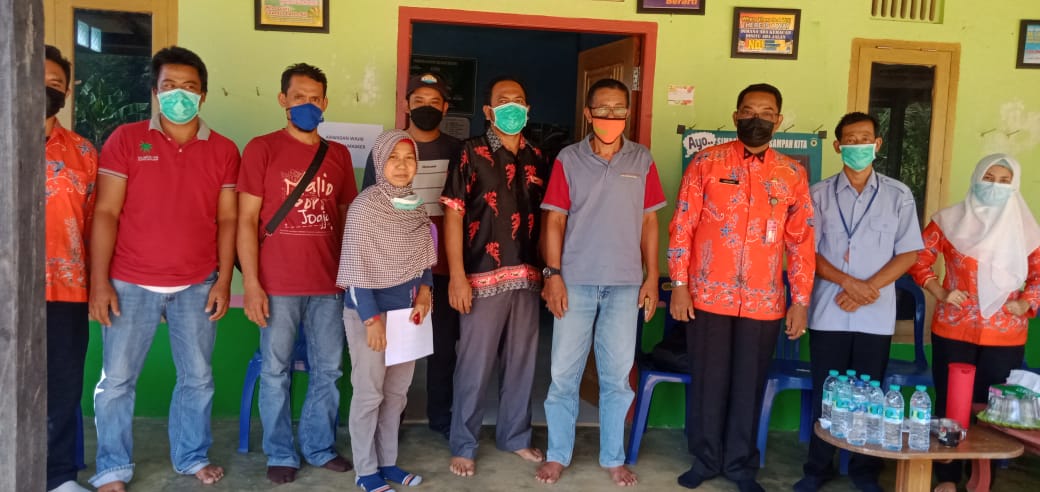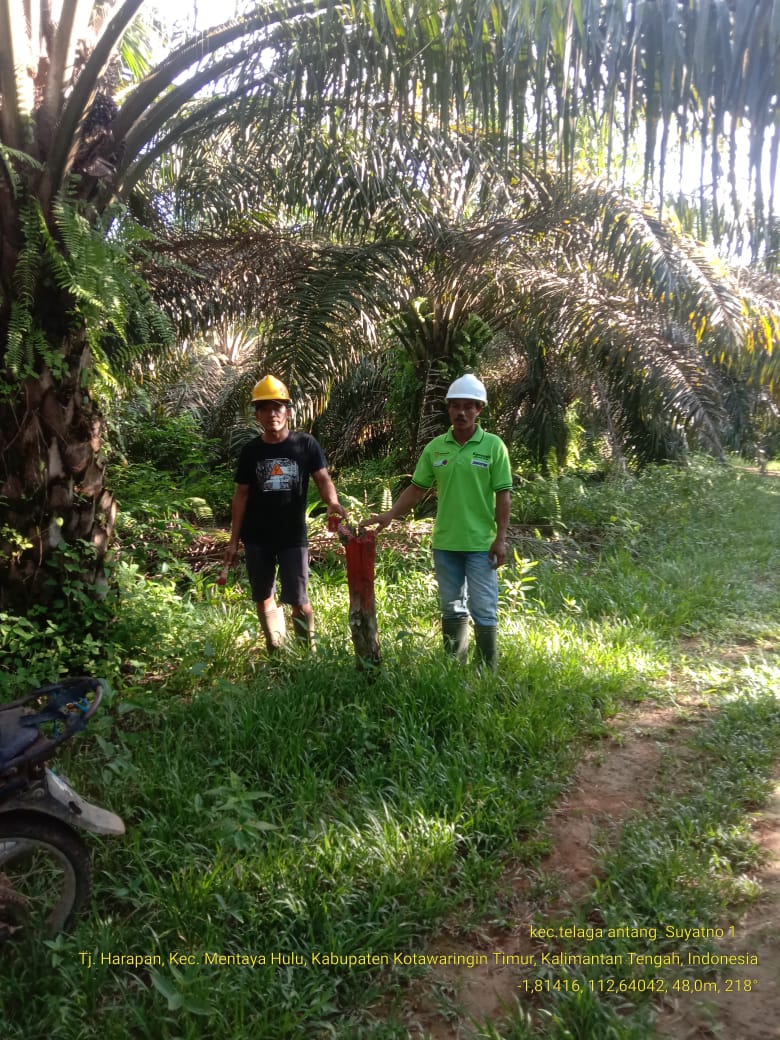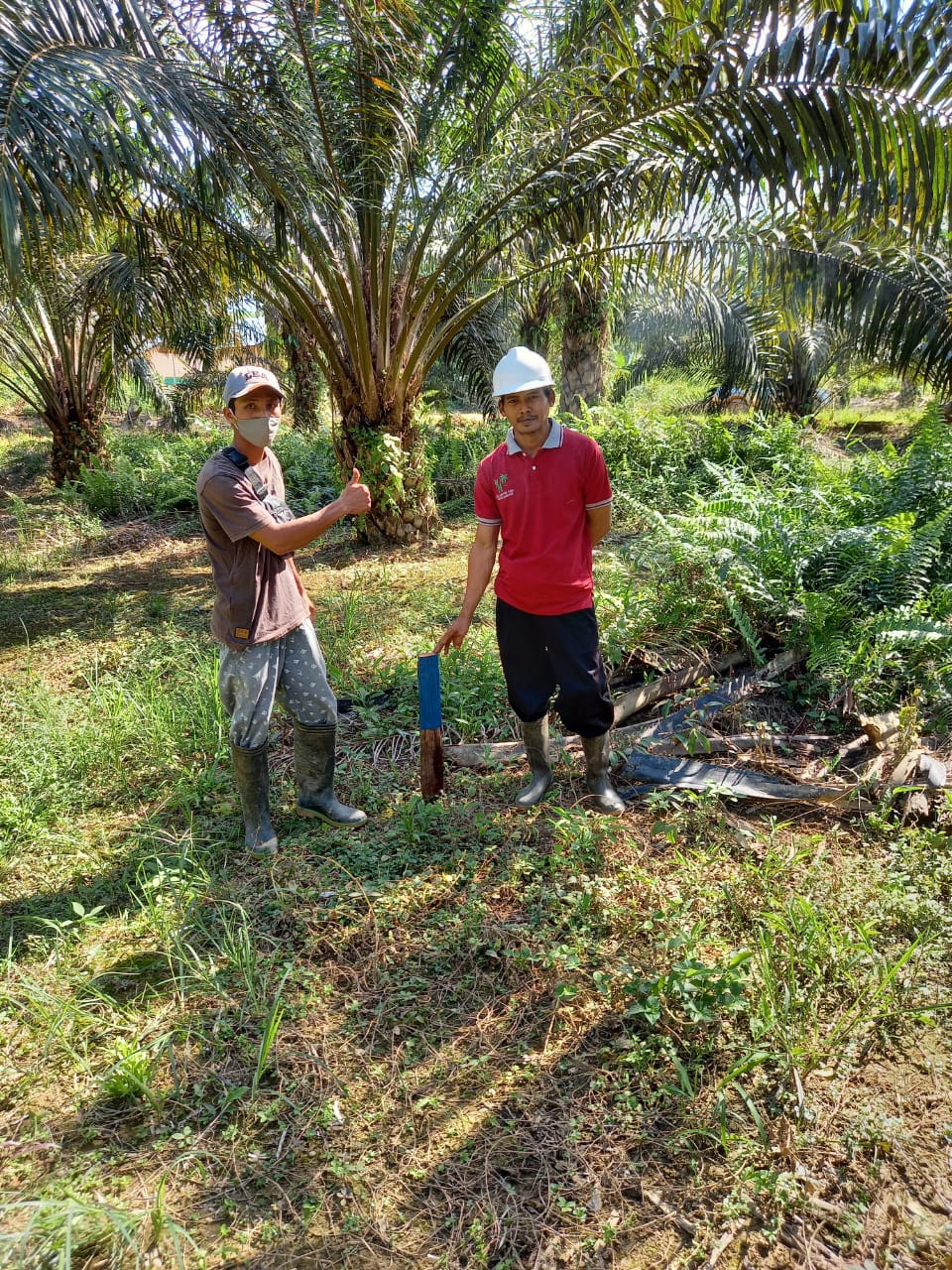
About the group
Number of smallholders: 116 (107 Men, 9 Women)
Total Land Area: 464 Ha
Status: Certified
Group location: Rambutan Street RT 07/ RW 04, Agung Mulya Village, Antang Kalang Sub-District, Kotawaringin Timur District, 74352, Central Kalimantan, Indonesia
Country: Indonesia
On-going Facilitator:
SUSTAINABILITY JOURNEY STORY
Smallholders committed to sustainability and ready for certification
The COVID-19 pandemic has hindered the progress of many initiatives over the past year, including the process of obtaining RSPO Certification for a smallholder group in a village in Kotawaringin Timur of Central Kalimantan. Undeterred, the farmers have doubled their efforts and are now expecting to have a breakthrough this year.
The Smallholder Group, called Kelompok Tani Karya Bersama and located in the Agung Mulya Village in Telaga Antang Sub-district, first learned of the certification about five years ago when oil palm farmers were increasingly becoming more aware of sustainable practices.
Group Manager Yoyok Kuswoyo recalls when PT Bumitama Gunajaya Agro (BGA) first introduced the village to good agricultural practices and best management practices in oil palm. Taking an interest in attaining RSPO certification, the smallholders had to go through a series of informative training sessions, he recalled.
“Most of the smallholders are keen to convert to sustainable practices as when the quality of fruits improve, they usually net higher prices. The farmers then benefit from additional revenue.”
However, after the initial socialisation of sustainability principles in 2016, the process of preparing for certification was not as smooth as expected. “Members of the farmers group are diverse. They have different land hectares, possess different educational backgrounds, and are of varied ages. It takes time to bring together individuals and educate all members to realise our common objective, which is to improve our livelihoods by applying sustainable practices,” Yoyok adds.
Once the group set its eyes on the RSPO certification, Yoyok says, the farmers committed to improving their agricultural practices and actively participated in the training sessions on various subjects.
Among these include plantation management procedures, land documentation, cultivation and environment protection, occupational health and safety, and other supporting workshops. Each farmer is mentored by instructors in their respective areas of expertise.
”Recently, there’s been a delay in the preparation stages that affects the audit process due to the pandemic. However, everyone has been working tirelessly and expects to complete the process soon,” he said.
“Preparation is a long process, but I’m glad we have about 70 to 80 percent of things done by now. We look forward to obtaining the certification later this year,” Yoyok said, adding that BGA and RSPO have provided support to the smallholders in the process.
He is confident that most of the smallholders will convert to sustainable practices, but acknowledges that maintaining discipline among the farmers is challenging.
“Another difficult part of the process was land certificate preparation, but we must get this done as it is one of the main requirements to get the certification.”
According to Yoyok, the conditions are much better now, with group members trying their best to preserve areas. For instance, they are more attentive to the management of the plantations close to the river.
“They avoid chemical use to protect the river and the environment. They also pay extra care to the uneven soil surface and always try to collect water, for instance, by filling up water retention ponds in anticipation of the dry season. The farmers also enforce zero burning practices, both in the plantation and in waste management.”
Kelompok Tani Karya Bersama has anticipated another challenge on the horizon when the group receives RSPO certification. “We will still have to deal with the middlemen. For a long time, farmers have been especially dependent on middlemen. The oil palm farmers had no choice but to sell their products to middlemen at very low prices, as the middlemen are in charge of marketing the products.”
“With the RSPO Certification, Karya Bersama will advocate for a contractual arrangement with a company like BGA for the sale of its products, so farmers will have bigger profits,” he said. He hopes that the Farmer Group will later be supported by the RSPO Smallholder Support Fund, which can be used to offset the fees of training sessions, capacity building programs, RSPO membership fees, and external auditing costs.
Yoyok is optimistic that once the group becomes RSPO certified, they can set an example to other oil palm farmers in the area. Hopefully, he said, more smallholders will join the Farmer Group so that more hectares will receive RSPO certification.
Project Impact
Total area covered by the project
464 Ha
Number of smallholders benefitting from this project
116 Smallholders
Number/percentage of women supported by this project
7.76% women in this project
How you can support
The group members are in the process of being certified due to delays caused by the COVID-19 pandemic. They will need assistance from third parties to maintain their livelihoods while upholding sustainable practices on their plantations. Their efforts should be valued by downstream players such as Consumer Good Manufacturers and retailers.
Please show your support by purchasing RSPO Smallholder credits. With your help, they can be better equipped to raise awareness of the benefits of sustainable oil palm farming and protect the environment around us.
GROUP CONTACT
Representative Contact
Yoyok Kuswoyok | Group Manager | [email protected] |
Sutrisno
Treasurer
(+62) 821-4990-7379
[email protected]
IMAGE GALLERY







